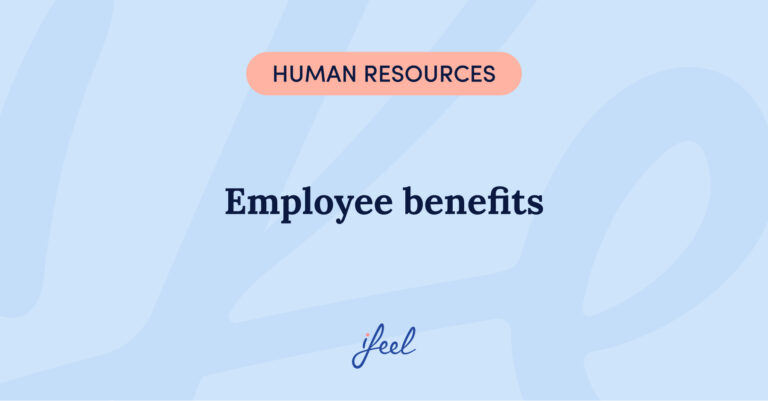Work isolation is one of the most important challenges when working from home. This is why companies are looking to create a hybrid work model. By mixing both formats, we will be able to experience the advantages of working on-site and remotely in a single model. This strategy aims to boost employee well-being in a growing digital environment.
In the last months, a large number of people have experienced the advantages of working from home: saving time, avoiding commute stress, being able to balance work and leisure, etc. We have also seen a rise in risks in working remotely such as an increase in technostress at work. This has aggravated due to the decrease in social interaction as we spend most of our time at home. Working remotely has its advantages, but it is important to watch out for psychosocial risk factors generated by this. It is crucial to take care of these factors so we don’t end up feeling affected by work isolation.
Those responsible for human resources are becoming increasingly aware of the risks work isolation can have on psychological well-being and productivity. To face this situation, they need the right tools that measure the work environment. It is necessary to put a plan of action in place of prevention and treatment of the causes and consequences of work isolation.

Companies can now implement this strategy thanks to the emotional well-being program created by ifeel. This program is designed to accompany workplace teams in their psychological well-being and improve their performance with artificial intelligence resources and by obtaining real mental health data from staff.
By losing touch with our colleagues, communicating online, and spending most of our time at home, we are switching off from life outside. This increases the feeling of social and workplace isolation. If you’re at a point where working from home is starting to get to you, you can counter the effects by following through with some of our tips.
How to tackle work isolation
1. An impartial view on the situation
If we are going to compare, then let’s do it the right way, taking into account the positives and the negatives of both situations, especially focusing our attention on the advantages of working remotely. This is what will have a favorable impact on our attitude towards work, interaction with our colleagues, and our mood.
The easy way is to think of the time you save by not having to commute to work and how you can spend it on sleeping longer or running errands. Not only should you remember this type of advantage, but look further into it, read the terms of physical and mental health. With less stress on your plate, you will have time to do other things instead of wearing yourself out in matters which are not strictly labor-related.
2. Mindful attitude (focused on the present)
The past of the old normality had its positives, including those related to the way we work. However, it is a past that is now behind us and we don’t know if it will repeat itself in the future. Therefore, it is also tempting to fantasize to distract us from our present which doesn’t fully convince us, and one in which we do not want to look ahead. Still, our current responsibility as workers can neither be in melancholy nor in anguish for a future we wish for but has not yet arrived.
Alternatively, it should be in the present so we can deal with this moment and adapt our resources to our current tasks, to the company we work for, to the development we have accomplished as workers now that a year has passed since we started working differently. Remembering that neither the past nor the future is perfect and that this moment will also pass, with all the positive and negative elements in it. It is not an obvious platitude but a useful tool to place us in today’s reality which we have to face.
3. Make the most of what you do have
Discover a new way of interacting with work but also a new way of living at home, of consuming, of distributing time, of focusing on relationships. Don’t sugarcoat the inconveniences created by working from home, for example, isolation at work, but pay attention to what it contributes to you.
What have you learned about the lifestyle you need to feel good? What have you learned about your capacity to organize yourself autonomously at work, your capacity to resist the loneliness from not having your colleagues, your ability skills with online tools which you didn’t even know existed a year ago? It is time to apply the lessons learned, or at least, make a note of them for when the time comes.
4. Analyze the situation from a perspective
Implement a panoramic vision, with perspective and analytical ability to appreciate refinements. The evolution of the pandemic and its consequences make us think everything progresses at a slower speed. It makes us feel we are in the same place we were a year ago and there is no significant progress in our situation.
Although you are still working from home, it is vital to think things are nowhere near the way they were a year ago. Maybe now you have the option of returning to your office, you can meet your colleagues from time to time to do certain tasks or activities. The breakthrough of the vaccine means that the risk of contact will no longer be. As we said before, focus on the whole picture, not just the negative.

5. Learn to downplay
Remember that work isolation is a relatively subjective experience. Being alone physically is not the same as feeling isolated (disconnected, excluded). Isolation is related to the perception of loneliness, the absence of our bonds. It has to do with the lack of inclusion in a project and group dynamics. Remote working is a situation that can foster isolation, that is, the emotional experience of feeling left out of a structure of interpersonal relationships.
However, it is not decisive: we aren’t destined to workplace isolation just because we can’t go to the office and stay at home. We can go to the office and still feel isolated, that is, exclusion. So, remember that sometimes it’s up to you, to your initiative, to counteract the isolation created from remote working.
Put an effort into keeping quality communication with your colleagues, even though it has to be through internal communication channels from the company. That is, put affection in interactions but, above all, in relationships.
Your team hasn’t been dismantled by the fact that you are each at home. It is about taking care of your team’s emotional climate through attitude, your ability to send signals to the outside, and for them to be picked up by someone and the other way around. It isn’t about playing nice or being overly present: it’s about taking care of our relationships and linking with others in a way that enhances our psychological well-being.
6. Focusing leisure on relationships
Take care of your leisure time and make it outward-looking, not just introspective. Whether you spend most of your free time at home or outside, make use of your time to do activities that allow you to reconnect with other spaces, environments, and above all, people.
Especially if you have a job that implies low interaction with people and makes you concentrate on yourself, switch that mode off when you finish work. Meet up with people, get some fresh air, and have face-to-face interactions. This will stimulate you at a cognitive level but also emotionally. Work isolation leads to a generalized experience of self-absorption, which also leads us to obsessively think about what we want, what we need, what annoys us, and what we long for… It is important to break these “ruminative” dynamics that detach us from others, they make us self-centered and stop us from receiving quality support and company from people.
Ifeel has designed an emotional well-being program for companies that includes a service focused on taking care of employees’ mental health on different levels and a personalized support system for human resources teams to help them enhance psychological well-being for their staff. It is proven that preventing workplace health problems is much more cost-effective than their treatment. Get in touch with us today and we can offer more information on how we can help improve your productivity through mental health care.
We hope you found this post about work isolation interesting. If you want more information about our emotional well-being program for companies, simply request it and we will contact your team as soon as possible.











